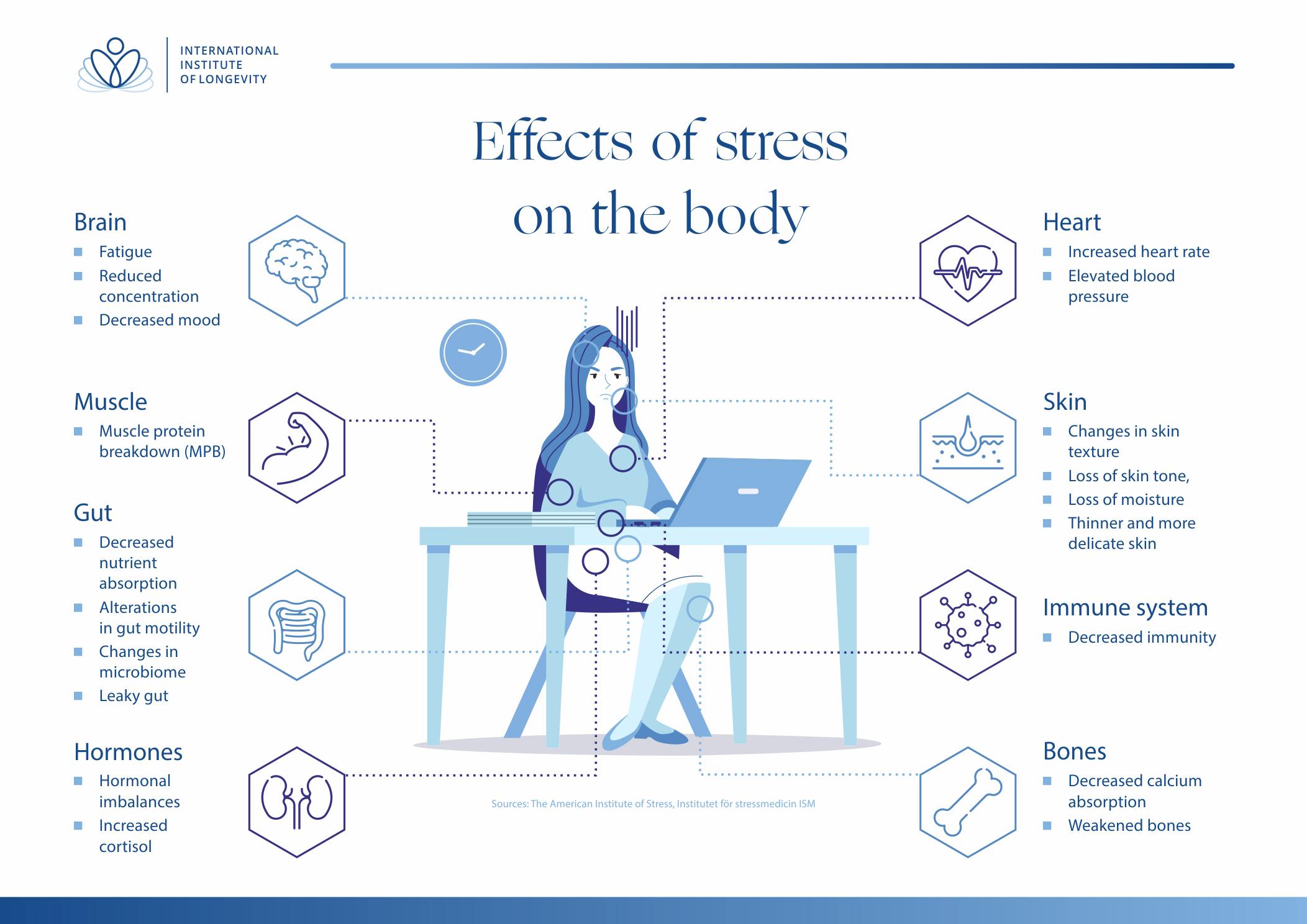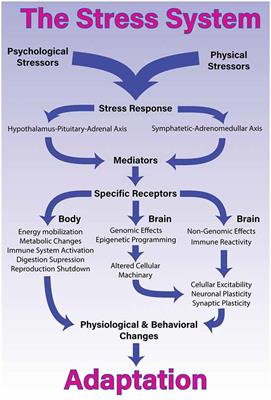Stress can be a natural response to life’s challenges but chronic stress and anxiety can significantly impact our overall health and well-being. Numerous studies have shown that these persistent emotional burdens can actually shorten our lifespan.
Anxiety and stress are common emotional responses when facing challenging or threatening situations.
Anxiety is a natural and adaptive reaction that prepares us to cope with potential dangers, but it can develop into an anxiety disorder when it becomes excessive and chronic. On the other hand, stress is the body’s response to demands or pressure, which can be both positive (eustress) and negative (distress).

In moderation, stress can motivate and energize us to tackle tasks, but chronic stress can lead to physical and mental health issues.
Both anxiety and stress can manifest with various symptoms, such as racing thoughts, restlessness, irritability, difficulty concentrating, and physical discomfort.
Our bodies undergo various physiological changes when we experience stress and anxiety over extended periods.
The release of stress hormones, such as cortisol, is heightened, leading to increased heart rate, elevated blood pressure, and compromised immune function.

Over time, this continuous activation of the stress response takes a toll on our organs and systems, contributing to various health issues.
One of the most significant consequences of chronic stress and anxiety is its impact on cardiovascular health. Prolonged exposure to stress hormones can damage blood vessels, leading to atherosclerosis and an increased risk of heart disease and stroke.
Stress-related behaviors, like overeating, smoking, or excessive alcohol consumption, can even exacerbate these risks.
Beyond cardiovascular health, stress and anxiety also affect our mental well-being. Persistent anxiety can lead to depression and other mental health disorders, reducing the overall quality of life. Chronic stress weakens the immune system, making us more susceptible to infections and diseases.

Fortunately, several effective strategies to decrease anxiety and stress promote a longer and healthier life. Incorporating regular physical activity into our routines can be immensely beneficial.
Exercise helps reduce stress hormones and releases endorphins, the body’s natural mood elevators, promoting a sense of well-being.
Another essential aspect of stress management is maintaining a healthy work-life balance. Prioritizing relaxation and leisure activities can help us unwind and recharge, reducing the negative impact of stress on our bodies and minds. Engaging in hobbies, spending time with loved ones, or practicing mindfulness and meditation are excellent ways to create a sense of calm amidst life’s pressures.
Consuming whole foods rich in antioxidants and nutrients can support overall health and provide the necessary resources for our bodies to cope with stress effectively.
Seeking professional help is also vital for individuals struggling with chronic stress and anxiety. Cognitive-behavioral therapy (CBT) and counseling can equip individuals with coping mechanisms and tools to navigate life’s challenges more effectively.
stress and anxiety can significantly impact our health and shorten our lifespan if left unaddressed.
The interplay between chronic stress and various health issues underscores the importance of effective stress management strategies.
Taking care of your mental and emotional health is just as important as tending to your physical well-being.


